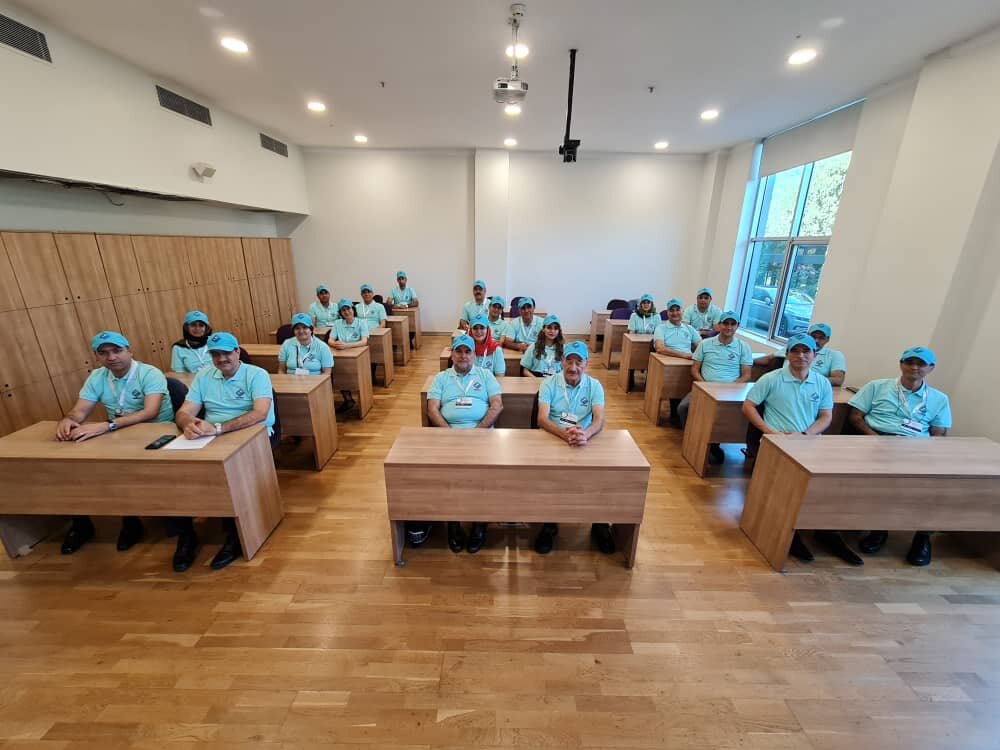Universal network dedicated to Persian-speaking tourism professionals formed

TEHRAN – Several veteran Iranian experts have formed an Internet website and association devoted to Persian-speaking tourism professionals and experts from across the globe.
The network has been established at the suggestion of the Cultural Heritage, Tourism and Handicrafts Ministry, the deputy tourism minister said in an address to a working group from the High Council of Iranian Affairs Abroad.
So far, some 450 tourism experts have joined the network (Shegarf.org), Shalbafian said.
The official said it is expected to become a firm tourism platform to rely on the expertise and capacities of Iranians abroad.
“A network has been formed to exchange the experiences of Farsi-speaking tourism activists and experts in various countries, and they are going to have monthly meetings in the future,” said Jafar Jafari, a professor of hospitality and tourism at the University of Wisconsin-Stout, Department of Hospitality and Tourism.
[The primary core of] Shegarf was born on the sidelines of the three-day conference on sustainable development and resilience of tourism, which was held in Istanbul, Turkey last year, with the presence of a group of activists, specialists, university professors, and researchers in the field of tourism, Following the establishment of this network, Jafari said in a recent interview with Mehr reporter.
“On the sidelines of this conference, Persian-speaking tourism activists and experts from Iran and other countries reviewed and approved the process of establishment and activity of a Persian-speaking tourism experts network.”
The expert added that for a long time, tourism activists have been demanding the creation of a space for an exchange of ideas and communication between Farsi speakers from all over the world who are active in the scientific and practical field of tourism, so that they can connect professionally and, in fact, by doing this, build a linguistic bridge for science and practice.
The author of the World Tourism Encyclopedia added: It is not only Iranians who speak Farsi; other nations such as Tajikistan, Afghanistan, and the people of other neighboring countries of Iran, as well as many people scattered around the world, speak Persian and have tourism expertise.
The network is intended to establish a network that will facilitate synergy and exchange of information and experiences among experts in the Persian language, Jafari explained.
“In fact, this is an opportunity for more interactions, cohesion, participation, and companionship that will lead to help for the sustainable development of tourism in Farsi-speaking countries and to improve the level of skills and knowledge of activists in this field in other parts of the world.”
“We have been thinking and consulting about the formation of this network for more than a year, we raised various challenges in the team of enthusiasts, and finally we agreed,” Jafari stated.
While inviting those interested, he added: The main office of the network is in Spain where the headquarters of the World Tourism Organization is located.
Jafari said the statutes of this network have been compiled and approved and have been registered with the legal authorities of Spain.
The added professional and specialized monthly webinars and meetings are held by inviting experts.
“Congresses and the annual meeting of the network of Persian language tourism experts will also be held in the future.”
According to data compiled by the tourism ministry, Iran saw 3.35 million tourist arrivals in the first half of the current Iranian calendar year (started March 21), which soared 38 percent year on year.
The rate of tourist arrivals, mainly from Iran’s neighboring countries, has been “promising”, Shalbafian said.
“In close collaboration with the Ministry of Foreign Affairs, we seek a border-easing strategy based on which it may unilaterally drop visa requirements for passport holders of 60 states,” the official said. The scheme recommends the unilateral cancellation of visas by Muslim countries and neighboring states to increase international arrivals.
The Islamic Republic recorded about 850,000 foreign tourist arrivals during the first two months of the year, which shows over 50 percent growth year on year, the tourism ministry announced earlier this year.
The ancient country expects to reap a bonanza from its numerous tourist spots, such as bazaars, museums, mosques, bridges, bathhouses, madrasas, mausoleums, churches, towers, and mansions, of which 27 are inscribed on the UNESCO World Heritage list.
AFM
Leave a Comment